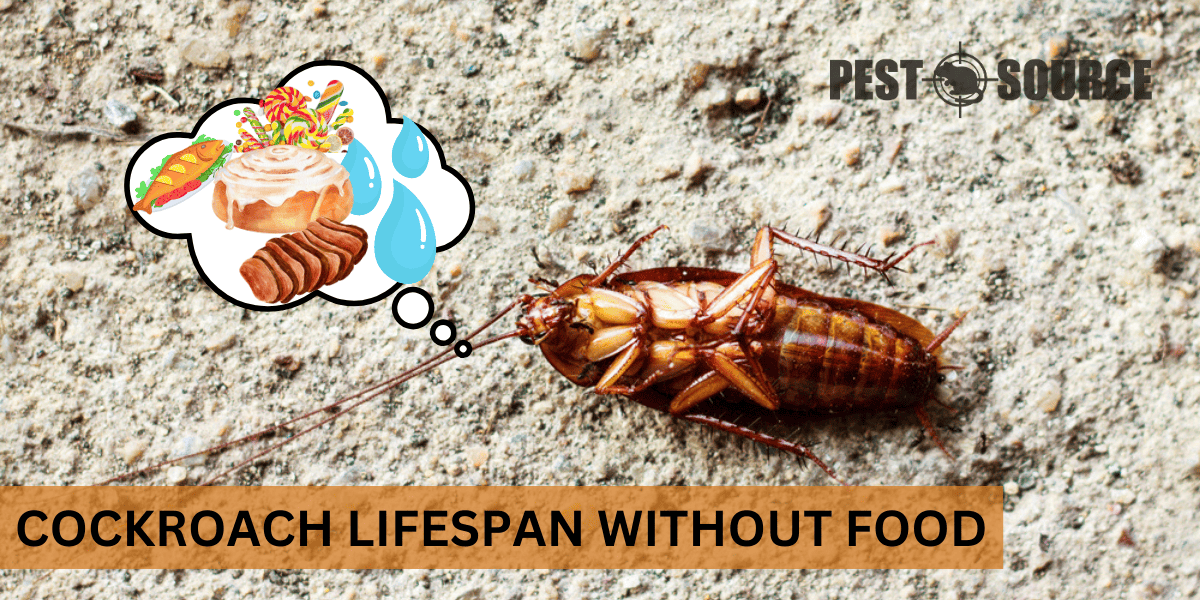A cockroach can survive without food for about a month, but only a week without water. This article discusses the resilience of cockroaches and implications for controlling infestations.
POINTS
- Cockroaches can typically survive for about one month without food, but this can vary based on species and environment, and they can live approximately one year under normal conditions with adequate food and water.
- A cockroach’s ability to survive without food is significantly impacted by its need for water, with most species only able to survive for one week without water.
- Cockroaches have evolved adaptations like a slowed metabolism during times of scarcity and are opportunistic feeders, which allow them to endure periods without food and water.
- Environmental factors such as temperature, humidity, and habitat (urban vs. wild) greatly influence a cockroach’s survival rate during food scarcity.
- Effective pest control strategies should focus on eliminating water sources, sealing entry points, using baits and traps, maintaining cleanliness, and considering professional pest control services to combat cockroach infestations effectively.
Cockroach Lifespan Without Food
Cockroaches are notorious for their hardiness and ability to survive in harsh conditions. A common question that arises when dealing with these pests is: How long can a cockroach live without food? To answer this, it’s essential to understand that cockroaches can survive for an impressive length of time without sustenance. Typically, a cockroach can live for about one month without food, but this duration can vary among species and is heavily influenced by environmental conditions.
Cockroach Survival Duration Compared to Their Lifespan
When considering their survival without food, it’s interesting to contrast this with the average lifespan of a cockroach. Under normal conditions, with adequate food and water, a cockroach can live for approximately one year. This means that the period they can survive without food is a significant portion of their life—a testament to their resilience. However, it’s important to note that while cockroaches can survive without food for quite some time, their health and reproductive capabilities are severely impacted during such times of scarcity.
Cockroach Survival Without Water and the Importance of Hydration
Hydration plays a crucial role in a cockroach’s survival. While these pests can go without food for an extended period, their need for water is more pressing. A cockroach can typically survive only one week without water, which is significantly less than their tolerance for food deprivation. This dependency on hydration is a critical factor in their overall ability to survive. The availability of water sources can often dictate the likelihood of cockroaches inhabiting a particular area.
Biological and Behavioral Adaptations for Survival
Cockroaches have evolved a variety of biological and behavioral adaptations that enable them to withstand periods of food and water scarcity. These adaptations include a slowed metabolism during times of deprivation, which conserves energy and extends their survival. Additionally, cockroaches are opportunistic feeders, meaning they can consume a wide range of organic matter, from food crumbs to paper and even glue.
The starvation process in cockroaches involves a gradual shutdown of their bodily functions. Initially, they will utilize the fat reserves and then metabolize muscle tissue to sustain themselves. This process can take several weeks, during which the cockroach’s activity levels and reproduction rates decrease significantly.
Environmental Factors Influencing Cockroach Survival
The ability of cockroaches to survive without food is not only a matter of their biological resilience but is also greatly affected by their environment. Factors such as temperature, humidity, and habitat play a significant role in determining their survival rate during food scarcity.
Temperature and Humidity’s Role in Survival
Cockroaches are cold-blooded insects, meaning their body temperature is regulated by the environment. In cooler temperatures, their metabolic rate decreases, which can prolong their survival without food. Conversely, higher temperatures can increase their metabolic rate, leading to a faster depletion of energy reserves and a reduced survival period.
Humidity also plays a vital role in a cockroach’s life. These pests require a certain level of moisture in the air to thrive. High humidity levels can aid in their hydration through absorption from the atmosphere, indirectly allowing them to survive longer without a direct water source.
Urban vs. Wild Habitats
The habitat of a cockroach can significantly impact its ability to survive without food. Urban environments, with their abundance of waste and shelter, can offer more opportunities for cockroaches to find food and water, even in scarce conditions. In contrast, wild habitats may not provide as many consistent resources, potentially shortening the survival time of a cockroach without food.
Debunking Myths and Misconceptions
There are many myths and misconceptions about cockroaches and their survival abilities. For instance, the idea that cockroaches could survive a nuclear explosion is exaggerated. While they are more resistant to radiation than humans, they are not immune to the extreme conditions that would follow such an event. It’s crucial to separate fact from fiction to understand and manage these pests effectively.
Implications for Pest Control Strategies
Understanding the survival capabilities of cockroaches is essential when developing effective pest control strategies. Given their ability to live without food for extended periods, simply removing food sources may not be sufficient to eradicate an infestation.
Strategic Approaches to Pest Control
To effectively combat cockroach populations, consider the following approaches:
- Eliminate water sources: Due to their reliance on water, fixing leaks and ensuring dry conditions can be more impactful than removing food.
- Seal entry points: Prevent cockroaches from entering the home by sealing cracks and crevices, which can also limit their access to food and water.
- Use baits and traps: These can be effective in attracting and killing cockroaches that are foraging for food and water.
- Maintain cleanliness: Regular cleaning can reduce food particles and residue that cockroaches can feed on, even in small amounts.
- Professional pest control: For severe infestations, professional exterminators can provide targeted treatments that consider the resilience and habits of cockroaches.



